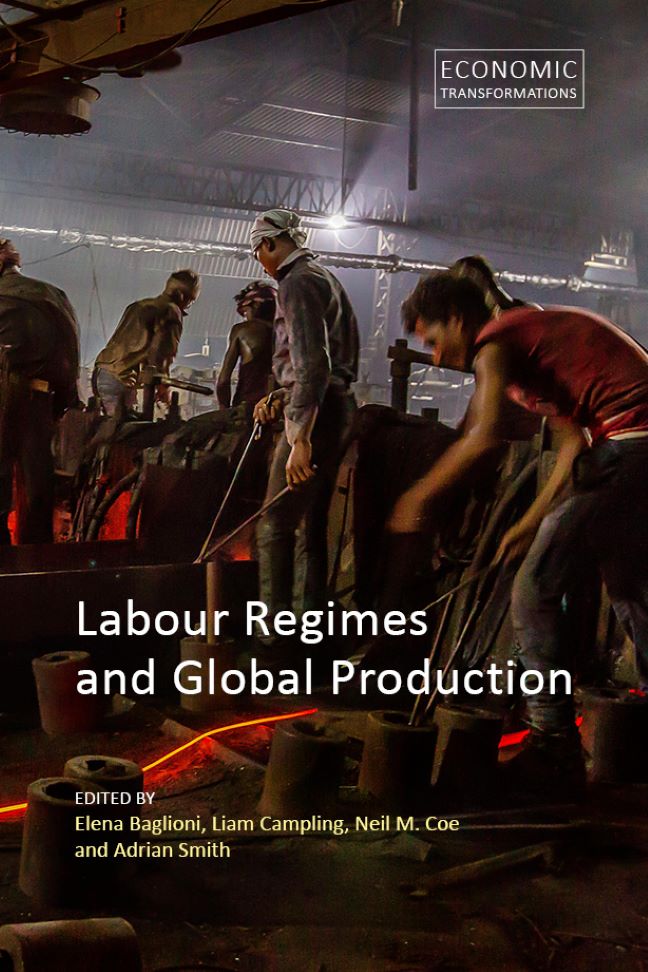13 - International Civil Society Organizations and the Temporalities of Labour Regimes: A Case Study From the Bangladeshi Apparel Industry
Published online by Cambridge University Press: 20 January 2024
Summary
Introduction
The labour regimes of the Bangladeshi apparel industry are seen as primarily characterized by the hyper-competitiveness of the global apparel industry and associated despotic labour market conditions (Anner 2015). This chapter, however, argues that they are equally driven, if not more so, by (a) strong state– manufacturer alliances against organized labour; (b) the structural deficiencies of national trade unions and contested labour politics; and (c) the interventions of international civil society organizations. I make these arguments by narrating the dynamics of both labour governance and labour agency at the national level, with relations among and between labour, capital, the state and ICSOs delimited as the key characteristics shaping Bangladeshi labour regimes. In so doing, the chapter pays special attention to ICSOs, as global representatives of labour (e.g. IndustriAll and Global Union Federation), as well as to other international non-governmental organizations and collectives campaigning for labour rights at the global level (e.g. the Clean Clothes Campaign and the Worker Rights Consortium). Given the transitory nature of these ICSO interventions, the chapter argues that labour regimes are temporal in nature as they evolve across time and space. Although labour regimes are innately multi-scalar (for example, see Chapter 14 by Campling and Smith), I focus primarily on labour regimes at the workplace. This is because it is at the workplace that the outcomes of the state– capital– labour– ICSO intersections are most legible.
This chapter is based primarily on empirical research using face-to-face interviews and focus group discussions. Overall, 94 interviews and ten focus group discussions were carried out between January and April 2019 in and around the Dhaka garment cluster. Interview participants included lead firm representatives, ICSOs, international regulatory bodies, government representatives, national trade unions, national civil society organizations, manufacturers and their associations, and workers. In addition, 13 garment factories were visited, consisting of a mix of large, medium-scale and subcontracting factories. I complemented primary data collection with information derived from secondary sources such as archives, corporate and government websites, state policy documentation, published information related to the apparel industry and government and industry statistics.
In the next section I briefly review recent work on labour regimes, with ICSOs flagged as a key element that needs to be incorporated into current debates. The section that follows describes the research context: the Bangladeshi apparel industry.
- Type
- Chapter
- Information
- Labour Regimes and Global Production , pp. 229 - 246Publisher: Agenda PublishingPrint publication year: 2022



